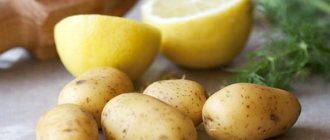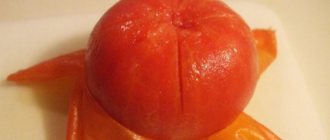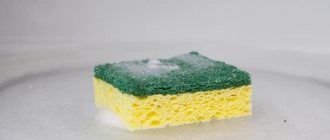Home Tips for the home
Some housewives, when wrapping vegetables for the winter, disinfect canned food with aspirin (acetylsalicylic acid).
At the same time, doctors believe that medications should not be put into pickling containers, and these preparations can cause significant harm to health.
This article will tell you in detail why and whether it is necessary to add aspirin when seaming vegetables. What is the best way to replace medicines in conservation?
The effect of the drug "Aspirin"
Aspirin has been widely used for a long time in the treatment of various diseases. It is an antipyretic, relieves pain, thins the blood.
Like other organic acids, this substance, when dissolved, forms an acidic environment - this solution has a detrimental effect on microorganisms.
This is the reason why housewives put a couple of tablets of a fever-reducing drug in jars when preserving winter seams. As a result, the twists have a very long shelf life and do not spoil for a long time.
Without sterilization
The main criterion for pickling without sterilization is the use of 1.5 liter jars. To fill you will need 700 milliliters of water.
Canning process:
- First of all, bring the water in the pan to a boil. At the same time, thoroughly rinse the jars and prepare the cucumbers (rinse and remove the tails).
- Place greens at the bottom of the jars.
- Place cucumbers on top of the greens.
- Fill the jars with brine. To avoid cracked cans, place them on a metal surface. Cover them with lids and leave for 20 minutes.
- After 20 minutes, drain the water and bring to a boil.
- Now pour the spices into jars and add the remaining herbs.
- After boiling the water, pour it into jars again and cover with a lid. Then roll up each lid.
- We turn the closed jars over and store them, covered with a blanket.
The popularity of adding acetyl to twists has become:
— Availability of the drug
- Cheap price
— Found in almost everyone’s home medicine cabinet
However, despite the very great effectiveness of acetyl as a preservative, most doctors have said many times that this drug is a drug and its use in food preparation is dangerous and simply unacceptable.
When is the best time to stop using Aspirin?
Symptoms of coronavirus infection do not appear immediately. After contact with an infected person, an incubation period must pass. At this time, it is especially important that the human immune system works normally in order to prevent the development of pathology. Therefore, many doctors recommend replacing Aspirin with an analogue during the coronavirus epidemic.
If Aspirin cannot be replaced, it continues to be used. But they carefully monitor their well-being. If the following symptoms appear, immediately contact a clinical facility, but it is better to call an ambulance:
- shortness of breath that occurs without physical activity;
- increase in body temperature above 37 degrees;
- heavy, labored breathing, chest pain, indicating an inflammatory process in the respiratory tract;
- severe weakness, fatigue, lethargy, which is observed even at the beginning of the day;
- dyspeptic disorders in the form of diarrhea, vomiting, nausea, flatulence;
- ARVI symptoms.
Previously, it was believed that coronavirus infection does not cause rhinitis and its complications. But then the doctors came to the conclusion that this was not true. A small proportion of patients develop mucous nasal discharge. If the condition becomes more complicated, a bacterial infection occurs.
Reasons why drugs should not be used for preservation
- Medicines and their breakdown products, which are formed in the marinade, leave the body through the kidneys, thereby having a destructive effect on the organs.
- If you often use acetyl, pyelonephritis may develop.
- The toxic breakdown products of the drug and the acidic environment of the drug have a destructive effect on the intestines and stomach.
- Aspirin should not be used by people with peptic ulcers. It is better for healthy people to take acetylsalicylic acid after meals and wash it down with fresh milk.
- Frequent use of aspirin with food may cause allergic reactions to this drug.
All of the above negative reasons are a reason not to use medicines when preparing vegetables for the winter.
Especially losing their relevance in our time are such additives that have a very bad effect on the body and cause significant harm to health.
How does aspirin work?
Today, aspirin does not have any properties and qualities that have not already been studied. Over decades, medicine has accumulated enormous experience regarding the action of this drug. Aspirin has long occupied its niche and is one of the essential drugs both in the Russian Federation and abroad.
How can one explain such incredible popularity of acetylsalicylic acid? The secret is simple, this drug contains a minimum number of side effects and at the same time copes with such ailments as fever, pain, inflammation, rheumatism, etc. Aspirin is part of the group of non-steroidal anti-inflammatory drugs. It reduces the synthesis of thromboxanes, but unlike other drugs in the same group, this process is irreversible when using aspirin.
how to take aspirin to thin your blood correctly
How can I replace aspirin for preserving winter twists?
Nowadays, there are many analogues that can replace aspirin in the use of homemade preparations. At the same time, canned vegetables are also stored for a long time, and are much superior in taste to preparations twisted using acetylsalicylic acid.
- Vinegar. It is an excellent preservative that is used by most housewives. It perfectly prevents the development of bacteria and various microorganisms in the marinade. However, doctors do not recommend that people suffering from peptic ulcers, gastritis, diabetes of any stage, frequent increases in blood pressure (hypertension) and other diseases eat preserved foods using vinegar.
Table vinegar can be replaced with natural apple cider vinegar. Apple cider vinegar contains a lot of potassium, and besides, it is not so harmful to the body and health.
- Lemon acid.
- Juice of sour berries and fruits. For example, lingonberries, red currants, lemon, lime. These natural preservatives do not harm health; on the contrary, they have a beneficial effect on the body. For winter preparations, such preservatives will improve the taste of canned food and its shelf life for a long time.
Negative consequences of consuming solutions with acetylsalicylic acid
The main disadvantages of using such a preservative are the properties of acetylsalicylic acid/aspirin:
- This is a drug used as an analgesic and fever-reducing drug. It can thin the blood, on the one hand, reducing the risk of blood clots, on the other, it can provoke gastric bleeding;
- acid has an irritating effect on the gastric mucosa, causes heartburn, pain in the epigastric region, and can contribute to the occurrence of gastritis;
- Constant use of salicylic acid causes the body to become accustomed to its effects, and can cause difficulties in treatment when the use of aspirin is vital.
Therefore, if there is a predisposition to allergic reactions or peptic ulcers of the stomach or intestines, functional kidney disorders, it is advisable to replace the preservative aspirin with something more harmless, for example, citric acid.
Adjika from zucchini - delicious recipes for the winter you'll lick your fingers
Adjika from zucchini is one of the best homemade preparations. Home canning preserves almost all the nutrients, flavor, and aroma of zucchini. There are a lot of recipes for making adjika from vegetables and fruits.
Therefore, we will continue the description of recipes with an emphasis on preparing it in the presence of zucchini. When a lot of these fruits ripen in a garden plot or vegetable garden, you want to make a tasty preparation. Which in winter would be an addition to many main courses.
Now let's look at the best recipes for zucchini adjika, which we will prepare in jars in different ways.
Adjika from zucchini, spicy for the winter
The fire from a spoonful of adjika will slowly spread throughout your body. Once you try this taste, you will not remain indifferent.
Required Products:
- Peeled zucchini - 2.5 kg
- Garlic - 4 heads
- Hot pepper - 2 pcs.
- Tomato paste - 450 g
- Vegetable oil - 1 cup
- Sugar - 1 glass
- Salt - 2 tbsp. l.
Cooking method
- Pass the zucchini and hot peppers through a meat grinder. If the zucchini gives juice. then drain it a little.
- Then add all the other ingredients except the garlic.
- Simmer all prepared vegetables for 1 hour.
- At the end of cooking, add more crushed garlic.
- Then place the zucchini mixture in clean, sterilized jars and seal.
- Adjika from zucchini should be stored in a cool place or in a cellar.
Zucchini adjika for the winter, a simple recipe “Friendly family”
Very often this type of sauce is called “man’s jam”, so it is not difficult to prepare it at home.
Products:
- Zucchini - 1 kg
- Carrots - 2 pcs. bulbs - 4 pcs.
- Garlic - 2 heads
- Tomato paste - 4 tbsp. l.
- Vegetable oil - 2 tbsp. l.
- Salt, pepper - to taste
Preparation
- Peel the zucchini, carrots and onions and pass through a meat grinder.
- Heat a deep frying pan, add oil, add chopped vegetables and simmer for 20 minutes.
- 10 minutes before the end of stewing, add salt, pepper and grated garlic.
- Dilute tomato paste in 1 tbsp. l. water, then pour it over the vegetable mixture.
- Mix everything again and simmer for another 5 minutes.
- Roll up the banks. Delicious zucchini adjika is ready for winter storage.
Adjika with zucchini and tomatoes - a delicious recipe
Adjika is often called a seasoning. And all because it is a universal seasoning that will decorate any everyday and holiday table, both at home and outdoors.
Ingredients:
- Zucchini - 3 kg
- Tomatoes – 1.5 kg
- Carrots – 500 g
- Sweet pepper – 500 g
- Garlic - 1 cup cloves
- Ground red pepper - 2.5 tbsp. l.
- Sugar - 1/2 cup
- Salt - 2.5 tbsp. l.
- Vegetable oil - 1 cup
Course of action
- Pass all vegetables: zucchini, carrots, sweet peppers and tomatoes through a meat grinder.
- Then add butter, sugar, salt and cook for 40 minutes.
- Then cool the whole mass, mix with chopped garlic and red pepper. Let everything cook for another 10 minutes.
- Place in sterilized jars and seal.
Recipe for adjika from zucchini with tomato paste and apples for the winter
The seasoning turns out tasty and very tender, everyone likes it.
Required ingredients:
- Zucchini - 3 kg
- Bell pepper – 500 g
- Carrots – 500 g
- Apples - 400 g (or 6 medium sizes)
- Garlic – 100 g
- Vegetable oil - 250 g
- Tomato paste - 250 g
- Vinegar 6% – 100 ml
- Salt - 1 tbsp. l.
- paprika - 1.5 tsp.
- Sugar - 100 g
Preparation
- Peel the zucchini and remove all seeds. Cut them into pieces and pass through a meat grinder.
- Grind peppers, carrots and apples separately.
- Place all prepared vegetables in a large container and put on fire.
- Add all the ingredients except the garlic to the container with the vegetables.
- Simmer the entire squash mixture for 1 hour, stirring occasionally.
- Finely chop the garlic or put it through a garlic press and place it in a container with the vegetables.
- Continue simmering the squash mixture for 1 hour. Don't forget to stir and taste for salt.
- After 2 hours of stewing, divide the adjika from the container into jars and roll up.
- There is no need to sterilize the jars.
Adjika from zucchini for the winter is the most delicious with tomato paste - video recipe
Make preparations of different adjika and taste it. Because taste is often imprinted in memory because of the sensations a person gets when tasting it.
Why is aspirin added to preserves, is it harmful and what alternatives exist?
Some housewives, when wrapping vegetables for the winter, disinfect canned food with aspirin (acetylsalicylic acid).
At the same time, doctors believe that medications should not be put into pickling containers, and these preparations can cause significant harm to health.
This article will tell you in detail why and whether it is necessary to add aspirin when seaming vegetables. What is the best way to replace medicines in conservation?
Recipe for crispy pickles in jars using the cold method
This is one of the most common ways to pickle cucumbers. But at the same time, at first he causes mistrust among young housewives. How is this possible – we poured cold brine over the cucumbers and that’s it! You don't need to do anything else. Everything else is the work of lactic acid bacteria. Miracles straight out - no sterilization for you! Is this really possible? Let's find out!
For one 3 liter jar:
- Cucumbers – 1.5-2 kg
- Salt – 80 g
- Ground black pepper – 1 tsp.
- Garlic – 5-6 cloves
- Dill, horseradish
- Cold water - approximately 1.5 liters
Preparation:
1. First, let's prepare everything you need for the recipe: fresh cucumbers, herbs, among which the leaves and roots of horseradish with dill umbrellas are especially important, as well as garlic cloves. Take coarse rock salt and ground black pepper. We also need cold water.
As for cans, these can be liter, two or three liter cylinders. Fortunately, you don't have to worry about sterilization! The jars need to be rinsed very well with soda and rinsed several times. Same thing with lids!
2. Cucumbers, if they are not just picked from the garden, need to be soaked in cold water for 3-4 hours so that they are saturated with water and become more juicy. After this, cut off the ends on both sides. This way they dry out faster. Cut the greens and garlic into small pieces to make it easier to put them in the jar.
3. First, prepare the brine. We do it as follows.
4. Since we will be salting cucumbers in two 3-liter jars, we will take 2 small jars (or bowls) for each 3-liter jar and measure 80 grams of salt into them. Pour in some water and mix well until the salt dissolves a little.
5. Now you need to put all the ingredients in the jar. Throw chopped dill and horseradish leaves to the bottom. Then vertically place the larger cucumbers inside the jar. We put smaller greens on them, and very small ones on top. We place them tightly so that there is no free space, but do not press them with force. We complete the installation with chopped garlic cloves and a small spoon of pepper.
6. Now the jar needs to be filled with cold water. First of all, pour the brine into it. There are salt crystals left at the bottom of the jar, so add water to it, which will wash the salt into the container with the fruit.
7. Next, take a decanter of cold water and fill the jar completely to the very brim. The water should be flush with the top rim of the container neck. The cucumbers should be three to four cm below the brine level. And there should be no air space in the jar, otherwise the fruits will become soft.
8. Cover the jar with a lid, but do not screw it on. Now we repeat the entire process of harvesting greens with a second three-liter cylinder.
9. Place the jars filled with fruits on bowls and let them ferment in a warm place for a week. As lactic acid bacteria act, the water begins to become cloudy, bubbles of carbon dioxide rush upward, light mold appears on the surface, and excess liquid flows down.
10. After a week, the fermentation process ends. You can remove mold from the surface of the jar. If a lot of liquid has leaked out, dilute a little salt in water and add it to our preparation. All that remains is to screw the jars tightly and send them to the cold - in the refrigerator or in the cellar.
11. Cold pickling is not for storing cucumbers in a city apartment. This method is applicable if you have a cellar in a country house or in the village. This is what the greens will look like when you go down to the cellar for them in winter.
12. But they will be so appetizing when you put them on a plate. Add the incredibly pleasant aroma of pickled cucumbers. You can eat them straight, cook pickle, make vinaigrette or salads.
How sad, you say! But what to do if you live in a city apartment? How to store pickled cucumbers for the winter? Do not worry! There are many ways that help stop the fermentation process and keep the fruits crispy, tasty, and without the need for additional sterilization. We will look at these recipes further.
Technology:
- The process begins with preparing the zucchini. You need to remove the peel, remove the seeds, even small ones. Cut small fruits lengthwise into strips, large ones - first across, then also into strips. Place in an enamel container.
- Prepare the marinade in a separate saucepan, that is, mix all the remaining ingredients. Wash the dill and parsley and chop. Divide the garlic into cloves, peel, rinse, chop or use a press.
- Stir the marinade until the salt and sugar dissolve. Pour the prepared aromatic marinade over the zucchini. Press down with pressure and put in a cool place for 3 hours. During this time, the zucchini will release juice and marinate.
- The next stage is sterilization. Pre-sterilize glass containers over steam or in the oven.
- Fill with zucchini and add marinade. If it is not enough, add boiling water. Cover with lids and place in a large saucepan with water. Sterilization time – 20 minutes.
Crispy cucumbers with citric acid with onions and carrots for the winter
Now consider the option of marinating with the addition of carrots and onions. If we replaced citric acid with acetic acid, the recipe would be called “Bulgarian Cucumbers.” But we have slightly different proportions. However, it also turns out delicious. Carrots look beautiful in jars. Therefore, it is often grated on an openwork grater. Visually it looks more attractive and elegant.
We will preserve it with pasteurization. Cucumbers are sterilized if there are no conditions for storage at an optimal temperature of 0-1 degrees. Then pasteurization well increases their shelf life at room conditions.
Let's take a 2-liter jar:
- cucumbers,
- half an onion
- half a carrot
- 1-2 cloves of garlic,
- 3-5 peas of allspice and black pepper,
- 1 tsp citric acid.
Marinade:
- 1 liter of water,
- 1 tbsp. salt,
- 3.5 tbsp sugar.
Step 1. Pre-prepare the fruits. Soak them for 2-3 hours in cold water. Then we rinse thoroughly with a clean new sponge (which we definitely haven’t washed the dishes with). Then cut off the ends of each cucumber.
Cut half an onion into half rings and carrots into slices. The grinding option is absolutely not important; it does not affect the taste of the products.
Step 2. Fill the sterile jar. First add carrots and onion pieces. We also send peeled whole garlic cloves there. Add peppercorns. If desired, you can add spices and herbs.
Place the cucumber fruits tightly. We try to choose the smoothest and most beautiful pieces of small sizes. Optimally 10-12 cm. If they are longer, they will need to be cut.
Immediately add lemon to the jar.
Step 3. Prepare the fill. To do this, we dissolve salt and sugar in a liter. Turn on the heat and bring the marinade to a boil.
Then fill the fruits with boiling brine to the very top. Cover the neck with a sterile lid.
Let's start pasteurization. Place a towel on the bottom of a wide pan. Let's put a jar on it. Pour hot water into the pan up to the level of the can hanger. Turn on the heating. From the moment of boiling, sterilize the cucumbers for 15 minutes.
https://www.youtube.com/watch?v=eJm8Xm0S58A
Then take out the container and seal it with a lid. We check the tightness of the seal and send it upside down “under the fur coat”. A day later we put it away for storage.
Delicious pickled zucchini in tomato sauce
List of ingredients to prepare:
- Tomato paste (can be replaced with regular ketchup, but take twice as much) - a glass.
- Young zucchini - two kilos.
- 5 spoons of sugar.
- 4 tablespoons of salt and the same amount of table vinegar.
- Bay leaf – 6 pieces.
- Garlic is at your discretion; you don’t have to use it at all.
- Peppercorns – 6 pcs. (three per one liter jar).
Recipe and method for pickling zucchini:
- Cut the vegetables into rectangles that need to be washed first.
- Place food in liter or half liter containers.
- Fill the container completely up to the neck with cold water and let sit for 20 minutes.
- Drain the liquid into any pan, set to heat, adding bay leaf, salt, tomato paste, pepper and sugar.
- As soon as the marinade boils, pour in the vinegar and stir.
- Pour the prepared marinade into the jars and seal immediately. Next, turn it over, wrap it well with something warm and leave it until the morning.
- The shelf life of pickled zucchini in tomato sauce is 1 year in a cool, dark place. If desired, you can add fresh carrots (cut into strips) or bell peppers to the recipe.
Why doesn't medicine have a place in food?
To understand what harm can be caused by preserving tomatoes with aspirin, you need to understand what acetylsalicylic acid is chemically. This substance is a derivative of salicylic acid, which was extracted from willow bark and has been used to treat fever for a long time. Salicylic acid, in turn, is a derivative of a substance toxic to humans - phenol.
Here are the consequences of consuming canned aspirin:
Any of the listed negative effects is a reason to permanently abandon the use of acetylsalicylic acid for canning. This decision is especially relevant these days, when there are many preservatives that do not cause harm to health.
What happens to the body if you eat canned food with aspirin?
Are tomatoes with aspirin harmful? Yes. Especially if the person using them is at risk of side effects. The harm from daily use of aspirin was proven by an international group of scientists from Australia and the USA, which conducted a study suggesting that aspirin can cause bleeding and cancer. The study results were published in The New England Journal of Medicine.
contraindications for “aspirin” preservation:
gastrointestinal diseases, especially of an erosive nature;
Source
Requirements for the selection of main ingredients
To prevent the brine from molding and the preservation to be tasty and aromatic, buy tomatoes that fit through the neck of the container.
To prevent vegetables from becoming soft during heat treatment and losing their attractive appearance, choose tomatoes that have dense flesh and strong skin.
Pickled or salted tomatoes that contain a lot of sugar are tastier - Sanka, Chibis, Zabava. Products are stored longer if varieties that are not affected by bacteria are used.
Why do we add an aspirin tablet to the preservation? Is it harmful to our health?
Most men and women who are involved in capping have long been accustomed to putting one aspirin tablet in almost every jar. But doctors have a different opinion on this matter.
They believe that drugs have no place in conservation and that it can be harmful to our health. That is why in this article we will try to figure it out with you.
Safe analogues
There are many safe substitutes for aspirin in modern and traditional cooking. The most common option is vinegar. It effectively prevents the development of bacteria in brine, but is not recommended for people with gastritis, stomach ulcers, diabetes, hypertension and many other diseases.
Instead of synthetic acetic acid, it is better to use natural apple cider vinegar. It is rich in potassium and is healthier.
Other substitutes for aspirin can be citric acid, juices of sour fruits and berries (lemon, lingonberries, red currants). These natural preservatives will not harm the body and will ensure good preservation and pleasant taste for canned food.
Source
Useful tips
Experienced housewives recommend keeping jars of closed cucumbers in a room where the temperature is below room temperature. A basement, cellar or garage is ideal for this. If the pickles are in the apartment, it is better to give preference to shaded corners (for example, in the pantry). Glass jars should not be left in the cold as they may burst.
Advice. You can preserve cucumbers with acetylsalicylic acid in a cold or hot way, with or without sterilization, by salting or pickling.
Regardless of this, three main rules should be followed:
- Before harvesting, the cucumbers are soaked in cold water for several hours.
- It is better to grind aspirin into powder before placing it in jars.
- With the hot preservation method, the jars need to be rolled up as quickly as possible, turned upside down and wrapped in a warm blanket.











